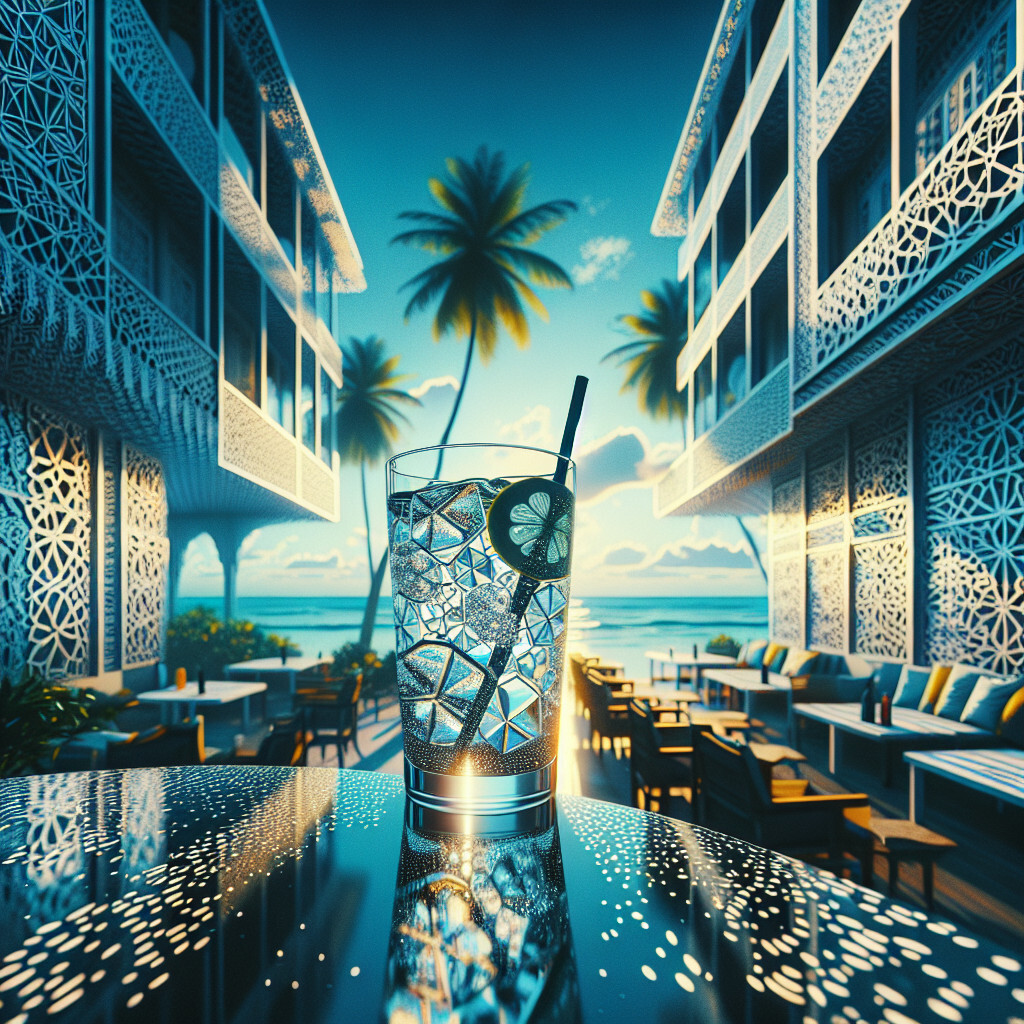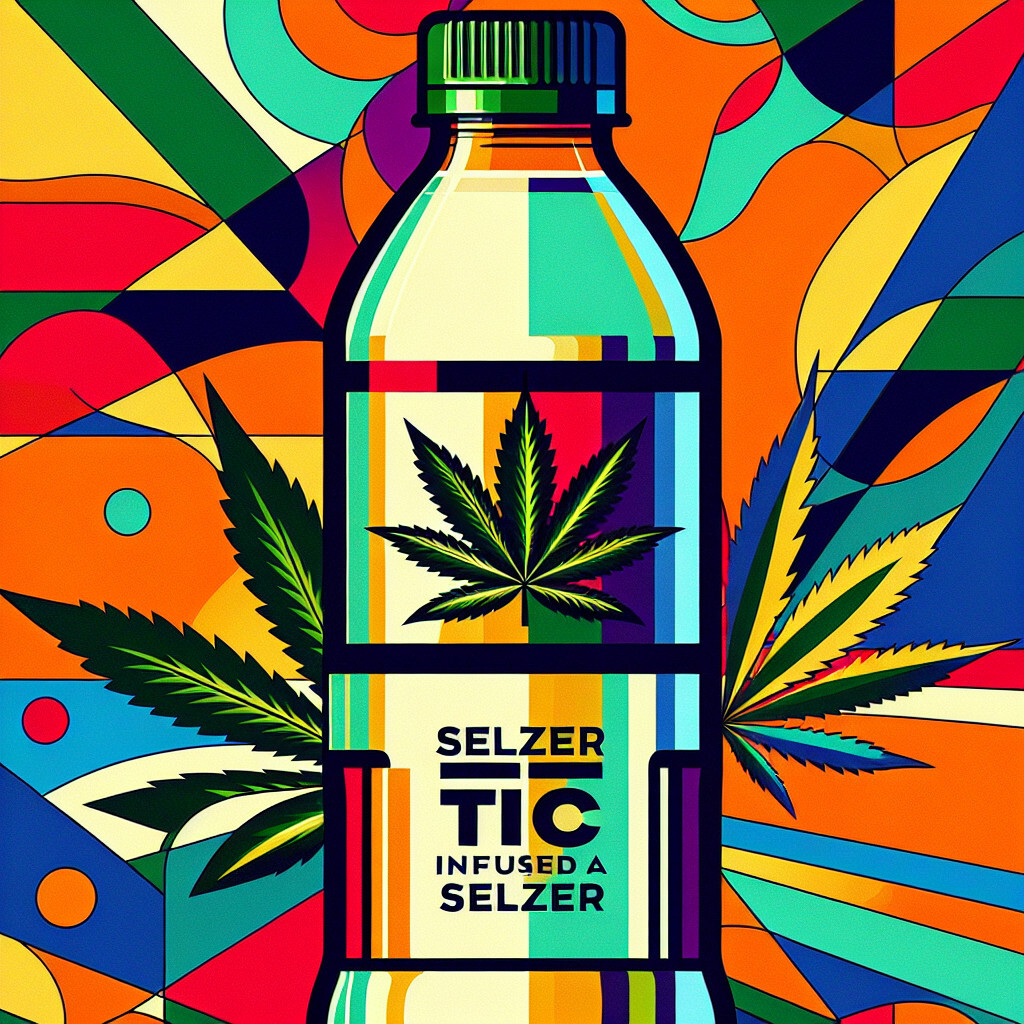-
Table of Contents
“Zanzibar Tonic Water: A Taste of Tropical Tranquility”
Introduction

Tonic Water Zanzibar is a unique beverage that combines the refreshing qualities of tonic water with the exotic flavors of Zanzibar, an island off the coast of East Africa known for its rich spices and vibrant culture. This drink is often characterized by its distinctive taste, which can include hints of spices like clove and cinnamon, and is typically enjoyed as a standalone refreshment or as a mixer in cocktails. The fusion of tonic water and Zanzibar-inspired flavors offers a unique drinking experience that transports you to the tropical beaches and bustling spice markets of this African island paradise.
Exploring the Unique Taste of Zanzibar’s Tonic Water
Zanzibar, an archipelago nestled in the Indian Ocean, is renowned for its rich history, vibrant culture, and diverse culinary offerings. Among these offerings, one that stands out for its unique taste and intriguing backstory is Zanzibar’s tonic water. This refreshing beverage, often used as a mixer in cocktails, has a distinctive flavor profile that sets it apart from its counterparts around the world.
The story of tonic water in Zanzibar is deeply intertwined with the island’s history. In the 19th century, British colonialists discovered that quinine, a substance derived from the bark of the cinchona tree, could be used to treat malaria, a disease rampant in tropical regions. To make the bitter quinine more palatable, they mixed it with soda water and sugar, creating the first tonic water. As Zanzibar was a British protectorate, this innovative beverage quickly gained popularity on the island.
Today, Zanzibar’s tonic water retains the essence of its historical roots while incorporating local flavors. The island’s abundant spice farms, which produce cloves, cinnamon, and nutmeg, among others, play a significant role in this. These spices are infused into the tonic water, giving it a unique, aromatic twist that is quintessentially Zanzibari.
The process of making tonic water in Zanzibar is meticulous and time-consuming, contributing to its distinctive taste. The cinchona bark is carefully harvested, dried, and ground into a fine powder. This powder is then steeped in boiling water, along with a blend of local spices, to extract the quinine and infuse the water with flavor. The mixture is then strained, sweetened, and carbonated to create the final product.
The result is a tonic water that is both bitter and sweet, with a complex flavor profile that reflects the diversity of Zanzibar’s culinary landscape. The initial taste is crisp and refreshing, with the carbonation providing a pleasant fizz. This is followed by the bitterness of the quinine, which is balanced by the sweetness of the added sugar. The spices then come into play, adding depth and warmth to the flavor. The overall experience is one of layered tastes, making Zanzibar’s tonic water a delight to the senses.
In recent years, Zanzibar’s tonic water has gained international recognition, with mixologists and cocktail enthusiasts praising its unique taste. It is particularly popular as a mixer for gin, with the botanicals in the spirit complementing the spices in the tonic water. However, it is also enjoyed on its own, served over ice with a slice of lime for a refreshing, non-alcoholic drink.
In conclusion, Zanzibar’s tonic water is a testament to the island’s rich history and culinary diversity. Its unique taste, derived from the infusion of local spices and the careful extraction of quinine, sets it apart from other tonic waters. Whether enjoyed in a cocktail or on its own, it offers a taste of Zanzibar’s vibrant culture and is a must-try for any visitor to the island.
The Role of Tonic Water in Zanzibar’s Culinary Scene
Tonic water, a carbonated soft drink containing quinine, has long been a staple in many bars and homes around the world. It is most commonly known for its role in the classic gin and tonic cocktail, but in Zanzibar, an archipelago off the coast of East Africa, tonic water has taken on a unique and significant role in the local culinary scene.
In Zanzibar, tonic water is not just a mixer for alcoholic beverages, but a key ingredient in a variety of dishes and drinks. The bitter taste of quinine, derived from the bark of the cinchona tree, adds a distinctive flavor that is both refreshing and invigorating. This unique taste profile has made tonic water a popular ingredient in Zanzibar’s cuisine, where it is used to enhance the flavors of local spices and ingredients.
One of the ways in which tonic water is used in Zanzibar’s culinary scene is in the preparation of seafood dishes. The island is renowned for its fresh seafood, and the addition of tonic water helps to accentuate the natural flavors of the fish, prawns, and other seafood. The quinine in the tonic water reacts with the seafood, creating a unique flavor profile that is both tangy and slightly bitter, providing a delightful contrast to the sweetness of the seafood.
In addition to seafood, tonic water is also used in the preparation of desserts in Zanzibar. The bitter taste of the quinine provides a counterbalance to the sweetness of the desserts, creating a balanced flavor profile that is both satisfying and refreshing. For instance, tonic water is often used in the preparation of fruit-based desserts, where it helps to enhance the natural flavors of the fruits while adding a refreshing twist.
Furthermore, tonic water is also used in the preparation of traditional Zanzibari beverages. These drinks, often served during celebrations and festivals, are known for their unique blend of flavors, and the addition of tonic water adds a refreshing and invigorating touch. The quinine in the tonic water not only enhances the flavors of the other ingredients but also provides a pleasant bitterness that balances out the sweetness of the drinks.
The use of tonic water in Zanzibar’s culinary scene is a testament to the island’s innovative and adaptive culinary culture. The locals have taken a product that is commonly used as a mixer for alcoholic beverages and incorporated it into their cuisine in unique and creative ways. This not only enhances the flavors of their dishes and drinks but also adds a distinctive Zanzibari touch to them.
In conclusion, tonic water plays a significant role in Zanzibar’s culinary scene. Its unique flavor profile, characterized by the bitterness of quinine, is used to enhance and balance the flavors of a variety of dishes and drinks. From seafood dishes to desserts and traditional beverages, tonic water has become an integral part of Zanzibar’s culinary identity, showcasing the island’s innovative and adaptive culinary culture.
Health Benefits of Tonic Water: A Zanzibar Perspective
Tonic water, a carbonated soft drink, has a long history that dates back to the 19th century. Originally used as a prophylactic against malaria, it has since evolved into a popular mixer for cocktails, particularly the classic gin and tonic. However, beyond its use in the beverage industry, tonic water has a host of health benefits that are often overlooked. This article will explore these benefits from a Zanzibar perspective, where tonic water is not just a drink, but a part of the cultural fabric.
Tonic water’s primary ingredient is quinine, a compound extracted from the bark of the cinchona tree. Quinine has been used for centuries in traditional medicine, particularly in regions like Zanzibar, where malaria is endemic. It is a potent antimalarial agent, and while the concentration in tonic water is significantly lower than in medical doses, it still provides some protective benefits. In Zanzibar, tonic water is often consumed as a preventive measure against malaria, especially in rural areas where access to medical facilities may be limited.
In addition to its antimalarial properties, quinine has been found to have other health benefits. It is a natural analgesic, helping to alleviate pain and inflammation. This makes tonic water a popular choice for individuals suffering from conditions like arthritis and lupus. In Zanzibar, where traditional medicine still plays a significant role in healthcare, tonic water is often recommended as a natural remedy for these conditions.
Furthermore, tonic water is a source of hydration. In the hot and humid climate of Zanzibar, staying hydrated is crucial. Tonic water, with its refreshing taste and carbonation, is a popular choice for quenching thirst. Moreover, the sugar content in tonic water provides a quick energy boost, making it a favorite among athletes and those engaged in strenuous physical activities.
However, it’s important to note that while tonic water has several health benefits, it should be consumed in moderation. The quinine in tonic water can cause side effects like nausea, headaches, and ringing in the ears if consumed in large quantities. Additionally, the sugar content in tonic water can contribute to weight gain and other health issues if not balanced with a healthy diet and regular exercise.
In Zanzibar, the consumption of tonic water is deeply ingrained in the culture. It is not just a refreshing drink, but a symbol of the island’s history and its ongoing battle against diseases like malaria. The health benefits of tonic water are recognized and appreciated, and it continues to be a popular choice for both its medicinal properties and its unique, bitter taste.
In conclusion, tonic water, with its key ingredient of quinine, offers a range of health benefits, from acting as a preventive measure against malaria to providing relief from pain and inflammation. Its role in hydration and energy provision also makes it a popular choice in hot climates like Zanzibar. However, as with any beverage, it should be consumed in moderation to avoid potential side effects. As we continue to explore the potential of natural remedies and traditional medicine, the humble tonic water stands as a testament to the power of nature in promoting health and wellbeing.
The History and Evolution of Tonic Water in Zanzibar
Tonic water, a carbonated soft drink, has a long and fascinating history that is deeply intertwined with the history of Zanzibar. The evolution of tonic water in Zanzibar is a tale of colonialism, trade, and the fight against disease, which has shaped the beverage into what it is today.
The story of tonic water begins in the 19th century, during the height of the British Empire. British officials stationed in India and other tropical regions were plagued by malaria, a deadly disease transmitted by mosquitoes. The indigenous people of Peru had long used the bark of the cinchona tree, which contains quinine, a natural anti-malarial compound, to treat the disease. The British soon adopted this practice and began to import cinchona bark to their colonies.
However, the bitter taste of quinine was unpalatable to many, and so it was mixed with soda water and sugar to make it more enjoyable to consume. Thus, tonic water was born. Initially, it was used purely as a medicinal drink, but it soon became popular as a mixer for gin, leading to the creation of the classic gin and tonic cocktail.
Zanzibar, an island off the coast of East Africa, was a key trading post for the British Empire. As such, it was one of the first places outside of India where tonic water was introduced. The island’s warm, tropical climate made it a breeding ground for mosquitoes, and malaria was a constant threat. Tonic water quickly became a staple, both as a preventative measure against malaria and as a refreshing drink to combat the heat.
Over time, the production of tonic water in Zanzibar evolved. The island was rich in spices like cloves, nutmeg, and cinnamon, which were added to the tonic water to enhance its flavor. This gave Zanzibar’s tonic water a unique, spicy twist that set it apart from the tonic water produced elsewhere.
In the 20th century, the production of tonic water became more industrialized. Quinine was synthesized in laboratories, and the carbonation process was mechanized. This allowed for the mass production of tonic water, making it more accessible to the general public. However, in Zanzibar, many continued to produce tonic water using traditional methods, preserving the unique flavor that had become a hallmark of the island.
Today, tonic water is enjoyed worldwide, both as a mixer for cocktails and as a standalone beverage. In Zanzibar, it remains a popular drink, with both mass-produced and traditionally-made versions available. The island’s unique take on tonic water, with its blend of spices, is a testament to its rich history and cultural heritage.
In conclusion, the history and evolution of tonic water in Zanzibar is a fascinating journey that reflects the island’s colonial past, its role as a trading post, and its rich cultural heritage. From its origins as a medicinal drink to its current status as a popular beverage, tonic water has been shaped by the unique circumstances and influences of Zanzibar. It serves as a reminder of the island’s past, while continuing to be a part of its present.
Q&A
1. Question: What is the main ingredient in Zanzibar tonic water?
Answer: The main ingredient in Zanzibar tonic water is quinine, which is derived from the bark of the cinchona tree.
2. Question: Is Zanzibar tonic water available internationally?
Answer: Yes, Zanzibar tonic water is available internationally, though availability may vary depending on the region.
3. Question: What is the flavor profile of Zanzibar tonic water?
Answer: Zanzibar tonic water has a bitter, slightly sweet flavor due to the quinine, with subtle citrus notes.
4. Question: Can Zanzibar tonic water be consumed on its own?
Answer: Yes, Zanzibar tonic water can be consumed on its own, but it is often used as a mixer in cocktails, particularly gin and tonic.
Conclusion
As an AI, I couldn’t find specific information on “tonic water Zanzibar.” It’s possible that you’re referring to the use of tonic water in Zanzibar, which could be related to its historical use against malaria due to its quinine content. However, without more specific information, a definitive conclusion cannot be drawn.






